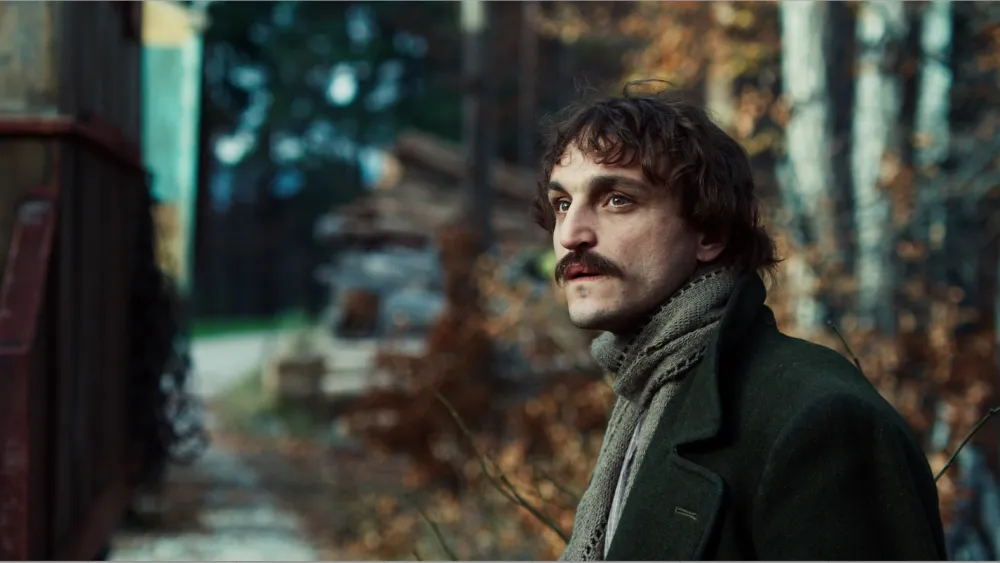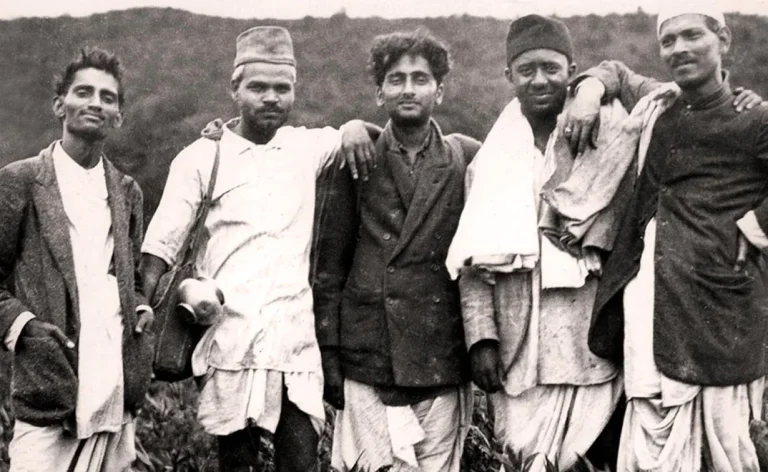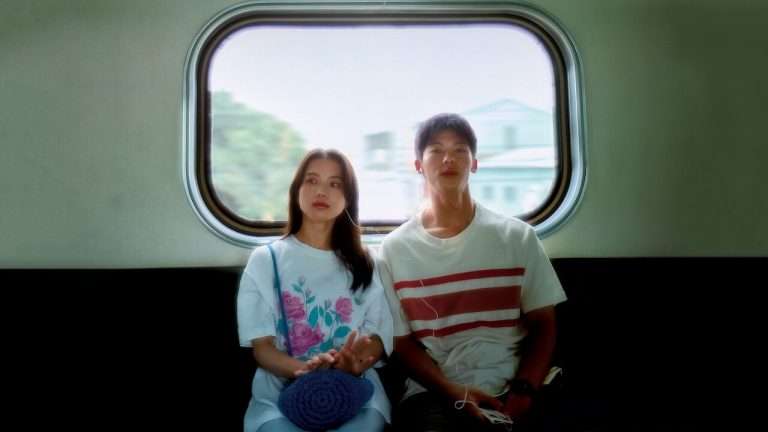What’s worse than being drafted for war, fighting off the frostbite and loneliness as much as the enemy? Having your wife killed and children kidnapped while you’re away. It wasn’t a big-nosed Child Catcher that stole Lubo’s kids from him, but the Swiss government. Yes—it was all completely legal, enforced under the “Kinder der Landstrasse” (“Children of the Road”) programme between 1926 and 1973. All the way up until the not-so-distant 70s, children were being swept from their itinerant homes and re-educated with a new, more “civilized” family.
Authorities thought children were better off in orphanages than Yenish families, who traveled around Switzerland in a nomadic fashion. For Lubo, soberly played by diverse newcomer Franz Rogowski, this meant that while he was protecting the Swedish border from German invasion, his family was being ransacked into oblivion.
Writer/director Giorgio Diritti bases Lubo’s story on Mario Cavatore’s 2004 book Il Seminatore, and although it’s fictional, Lubo is grounded in a very real global atrocity. Cinema is exhausted with world war films, though there still seems to be new scandals, stories, and events being unearthed every year—corners of wartime history yet to be dusted (such as Shoshana—the untold story of Jewish Palestinians rising against British occupiers, which also screened at the BFI London Film Festival).
We’re introduced to Lubo as a street performer, layering a bear costume on top of a semi-drag, like a Russian Doll of identities. It’s exactly this theme of shifting, losing, or faking identities that the film runs on. Or rather, strolls along with a limp. Clocking in at nearly three hours, Diritti refuses to rush his narrative as amidst every snow-dusted Swiss landscape, sometimes, a sense of urgency is needed. This is a conclusion that Diritti doesn’t seem to reach until the very end when he rushes through a thread-tying conclusion like letters squeezing on the end of a page when you’ve written the title too big.
Nonetheless, there’s something admirable about Diritti’s indulgence of time, of not cutting this part of history short the way it is in the classroom. After his performance, Lubo is swiftly taken by the authorities and shoved into a military uniform. Whilst away, Lubo is informed of his wife’s tragic death and the disappearance of his children and must pretend nothing’s wrong to his superior officers. Among the shared army cots and morning marches, Lubo is given no space to mourn, causing his grief to fester into a rage that boils into the unfortunate life of an unsuspecting smuggler.
In a particularly brutal scene—not in blood but the cold removal of it, as we witness Lubo take a life from a faraway still shot—Lubo steals the man’s identity and hits the road. It’s no secret that good men can become capable of bad things in the landscape of war, and it’s here that Lubo’s morality play enters the stage. Lubo only has one goal: to find and retrieve his children, but at what cost?

Lubo’s opening street act foreshadows his transition yet to come—a microcosm of the masks Lubo will have to wear when tracking down his family. Posing as a jewelry trader, Lubo (now Bruno) masters his new gentlemanly manners remarkably fast. Too fast to perhaps be believable had he not already been established as a man of disguises. Subtly, Lubo slips into higher society, speaking Yenish, Italian, French, and German in perfect tongue, thanks to Rogowski’s sharp acting skills.
Lubo ironically ends up better off during the war without a family than he was before it. He sleeps in grand, darkwood hotel rooms and courts rich women beneath expensive chandeliers. Another strand of moral ambiguity is played here, as Lubo manipulates various women in his meticulous child-tracking scheme. As Lubo sets off on this trajectory, a tarot reader tells him to find the love for his wife in every woman he encounters. Surely an excuse if any man could find one—to seduce wealthy ladies under the order of the divine card.
Despite wearing silk and fine dining, there’s an emptiness to Lubo’s new lifestyle that shines brighter than any diamonds. For all their charity work, these upper classes still live in vain ignorance, unable to imagine a life of poverty and trenches—nor the love and authenticity in it. When Lubo presents a table of women with a platter of jewels, they all gasp and cluck at the pearls like hens in a cage, arguing over who gets first pick. It is a sad and hollow scene, evoking both pity and anger within the audience. You can see the restraint in Lubo’s eyes when a woman suggests his native Yenish people—or anyone on the poverty line, really-–should be sterilized. Diritti reveals there was more than one ethnic cleansing going on in the 1940s, if not always consciously.
Rogowski’s taut performance is at the heart of Diritti’s excessively long runtime, wearing the complexities and conflicts of his anti-heroic lead like a glove. There are no real subplots to be spoken of in Lubo, keeping a tight focus on one man’s journey across borders and status. He is at the center of every scene, keeping Lubo from feeling too overwhelmed and dislocated—like Lubo himself—under such a monumental production (100 locations and 1,300 extras in nine weeks). That said, there are no real shocking moments for such a shocking story.
The magnitude of a lawful crime, where races, cultures, families, and tribes are erased, is never fully realized. We learn that children were even stripped of their real names when placed in foster homes, given new titles to fit their new, strange lives, and labored at the hands of abusive farmers. Diritti sets us up for something that doesn’t quite deliver, going through the motions of melodrama against an autumnal, chocolate box backdrop that fails to relay the true horrors of war. Luckily, Rogowski is there to save the movie.


![Hema Hema: Sing Me a Song While I Wait [2016] : Jio MAMI Mumbai Film Festival with Star](https://79468c92.delivery.rocketcdn.me/wp-content/uploads/2016/12/hemahemasingmeasongwhileIwait_04-768x384.jpg)




